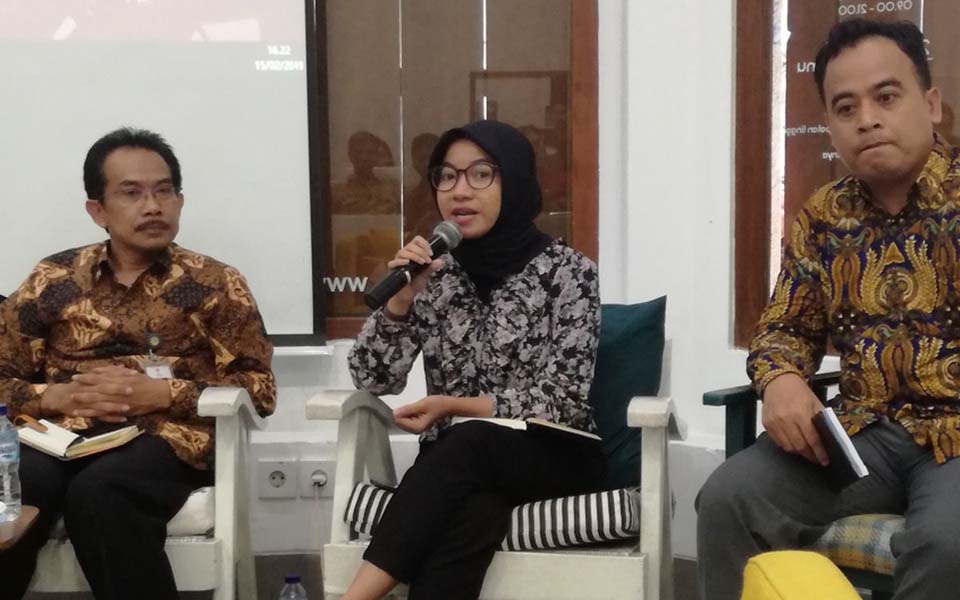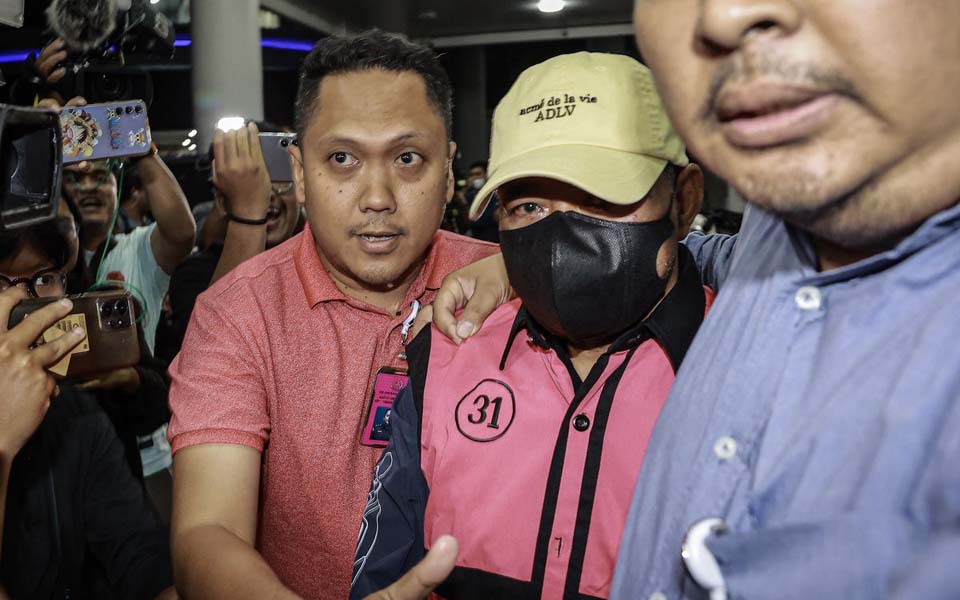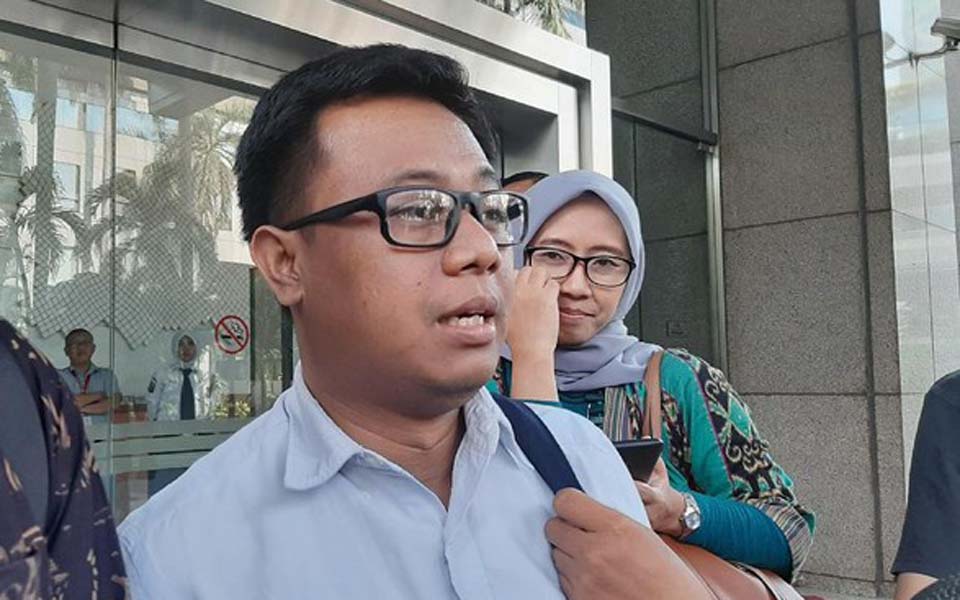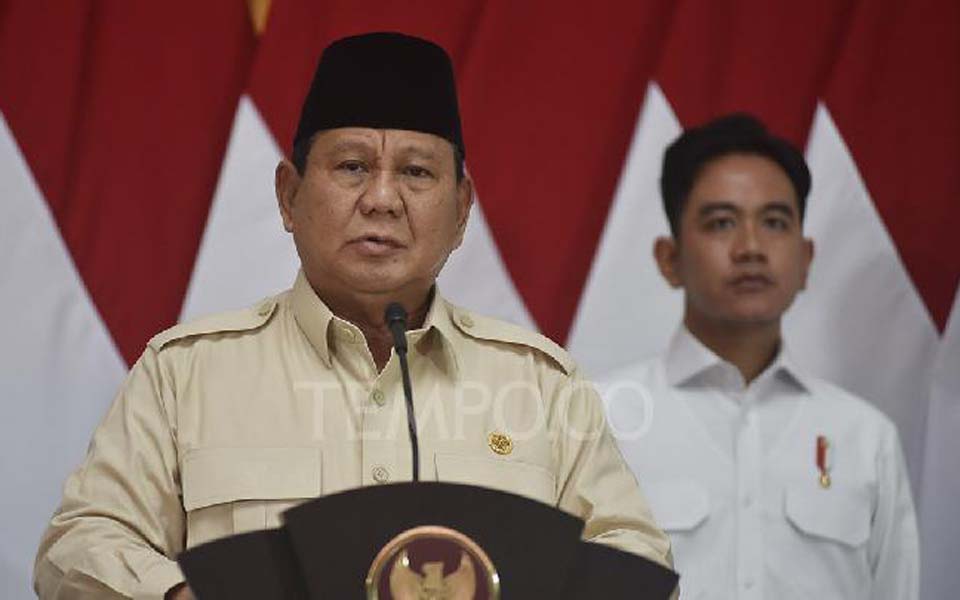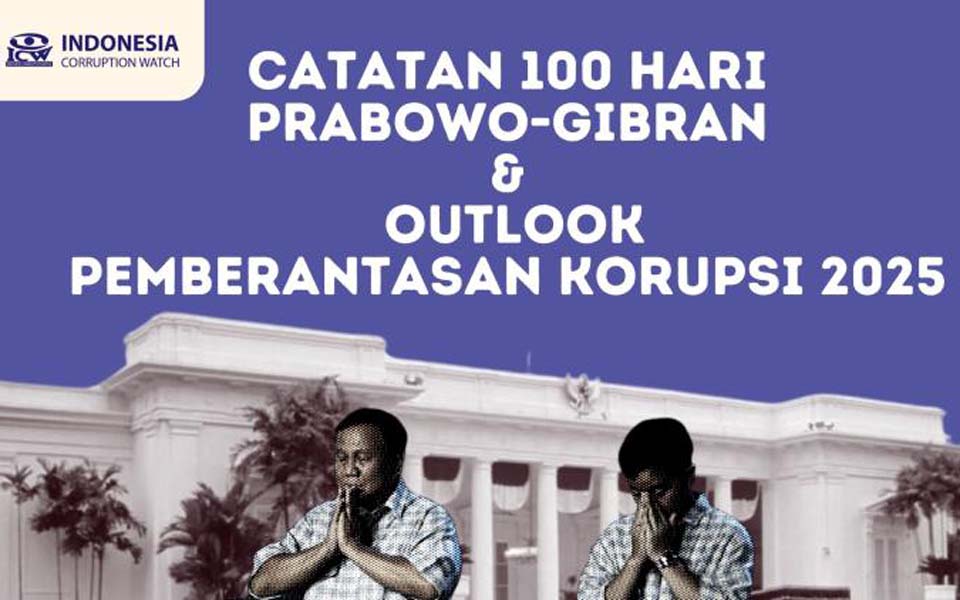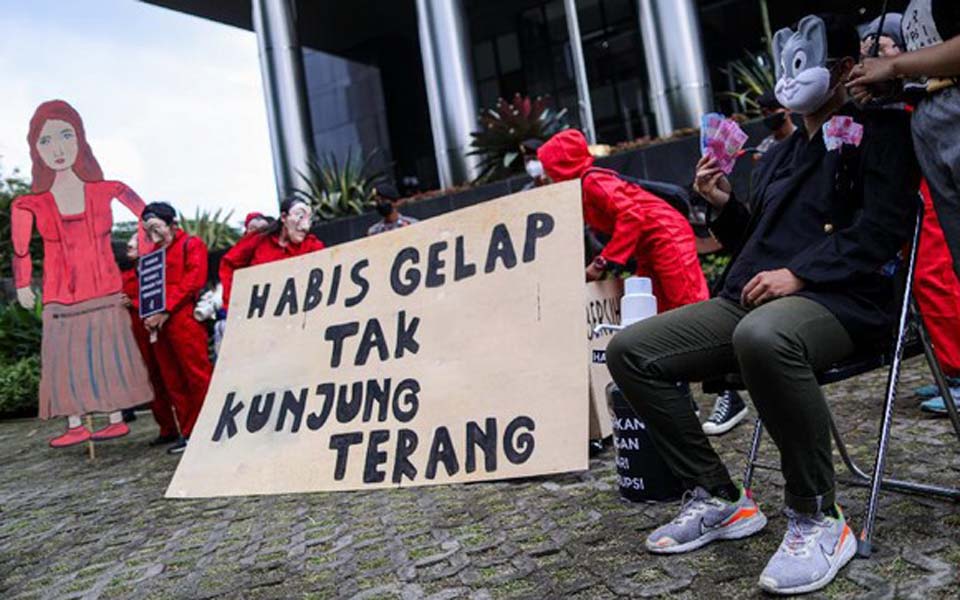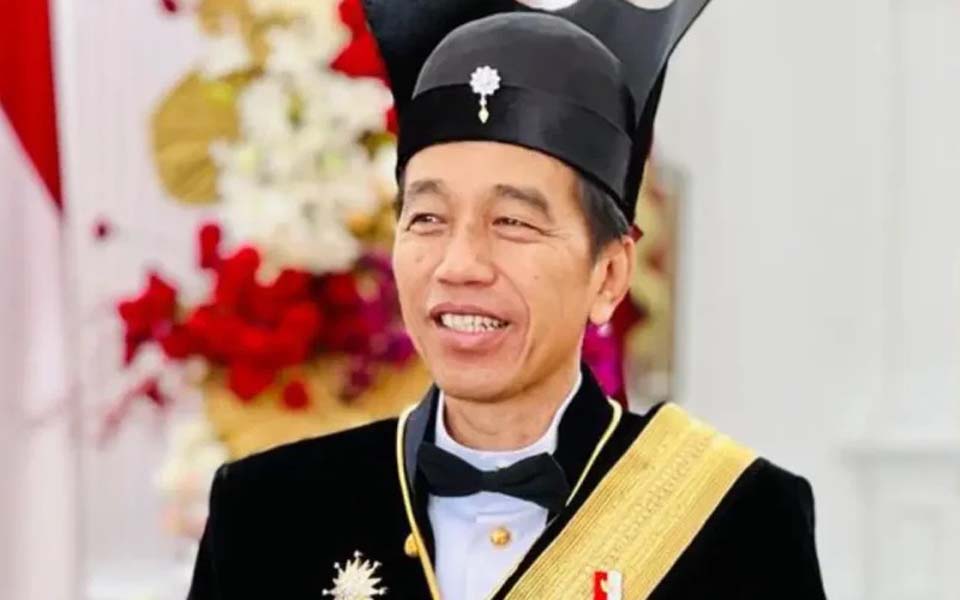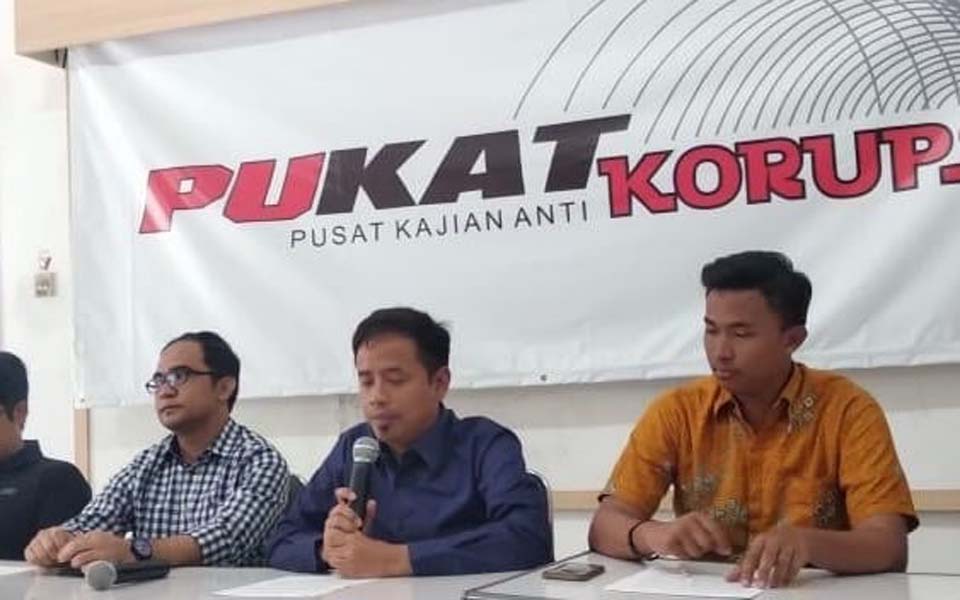Jakarta – Following the announcement by the Corruption Eradication Commission (KPK) that it will honorably discharge 57 of its employees on September 30, a number of different parties have urged President Joko "Jokowi" Widodo to take a firm stand on the issue.
So far, Widodo has only responded briefly saying that the party with the authority to respond to the problem is the administrative officials, in this case the Ministry of Administrative and Bureaucratic Reform.
Widodo has yet to respond to public calls to intervene on the pretext of respecting the legal proceedings on the case which were at the time still being heard by the Supreme Court and the Constitutional Court.
"Don't drag the president into everything. This is related to legal etiquette. I must respect the legal process that is currently taking place", said Widodo on Wednesday September 15.
Muslim intellectual Azyumardi Azra believes that Widodo is in fact avoiding his responsibility as the highest leader in the country. According to Azra, Widodo must follow the recommendations of the Ombudsman and National Human Rights Commission (Komnas HAM) on the matter as official state institutions.
"It's not appropriate for President Jokowi to evade responsibility for the sacking of the 57 KPK employees. Politeness or etiquette, the president as the top executive leader must get control of the KPK leadership who are acting arbitrarily", Azra told CNN Indonesia on Thursday September 16.
Padang Andalas University Constitutional Studies Centre (Pusako) Director Feri Amsari believes that Widodo has the authority to appoint or dismiss state civil servants (PNS) based on Government Regulation Number 17/2020 on the Management of PNS. He is not however, doing this.
"Jokowi's disregard must be understood in terms of the one who is dismissing the KPK employees [is actually] Jokowi. Because, the one who made Law Number 19/2019 on [revisions] to the KPK [Law], the government regulation on transferring their status [to state civil servants] and the government regulation on employee management was Jokowi, right", said Amsari.
The head of the legal affairs and human rights board of the Islamic mass organisation Muhammadiyah, Trisno Raharjo, is also asking Widodo to immediately take a firm stand on the dismissal of the 57 KPK employees.
If he does not respond quickly, Raharjo believes it will show that Widodo agrees with the process of purging KPK of employees which have opposed revisions to the KPK Law.
"This shows that the president agrees with the changes that have occurred and the purging of those considered to have disrupted what has been achieved by the changes that have occurred [within the KPK]", he said.
Gajah Mada University (UGM) Center for Anticorruption Studies (Pukat) researcher Zaenur Rohman believes that Widodo's stand on the dismissal of the KPK employees has been too soft.
According to Rohman, Widodo's position is not in line with his earlier statement that the civics knowledge or nationalism test (TWK) cannot be used as a basis to sack the employees.
"And this soft position by Jokowi is not the first time. For example, before Jokowi also promised to issue a Perppu [Regulation in Lieu of Law to annul the revisions to the KPK Law], but it didn't happen. And in the case of the TWK to transfer the status of these KPK employees, Jokowi also once said in a speech that the TWK was not grounds for the dismissals. But in the end the president did not take a stand and tried to save himself", said Rohman.
Indonesia Corruption Watch (ICW) researcher Kurnia Ramadhana has asked Widodo to hold a meeting between the Ombudsman and the Komnas HAM before taking a position.
"It should be, so that his assessment is objective, implementing the TWK policy must also refer to the findings of the Ombudsman and Komnas HAM. For this, it would be best if the president schedules a meeting with the Ombudsman and Komnas HAM", said Ramadhana.
Amnesty International Indonesia meanwhile is also urging Widodo to cancel the honorable dismissal of the 57 employees. Amnesty International Executive Director Usman Hamid says that the dismissals ignore the findings of the Ombudsman and the Komnas HAM.
The Ombudsman has stated that there was a misuse of authority and administrative and procedural violations in drafting the policy on and the implementation of the TWK.
Komnas HAM meanwhile has concluded that there were 11 forms of human rights violations in the process of transferring the status of the anti-graft agency's employees though the TWK method of assessment.
This includes, among other things, the right to justice and legal certainty, the rights of women, the right not to be discriminated against and the right to freedom of religion and belief.
The KPK employees who failed the TWK have pursued several legal channels including through the Komnas HAM and the Ombudsman. They also used the Komnas HAM and Ombudsman's findings as a model to challenge the decision in court.
Despite this, they are fighting an uphill battle. The Constitutional Court (MK) has rejected a request for a judicial review of articles in Law Number 19/2019 on the KPK (the revised KPK Law) related to the TWK.
In addition to this, the Supreme Court (MA) has also rejected a request for a judicial review of KPK Regulation Number 1/2021 which regulates the TWK. The court declared that the transfer of the status of the KPK employees through the TWK was in accordance with Law Number 5/2014 on Civil Servants.
Following the two court rulings, senior KPK investigator Novel Baswedan says he hopes that President Widodo will intervene. At the same time, Komnas HAM has said that it hopes to meet with Widodo so they can explain the problems with the TWK.
"We're still hoping to be able to directly convey our findings and explain it to the president. Especially after the MK and MA rulings, so that the president understands that Komnas HAM's factual findings are different from the two rulings by the MK and the MA", Komnas HAM Commissioner Choirul Anam told CNN Indonesia on Monday September 13. (dhf/pmg)
Notes
The so-call civics knowledge or nationalism test (TWK) is part of the administrative process of transforming all KPK employees into civil servants as mandated by the revised KPK law. According to KPK Chairperson Firli Bahuri, the test aimed to ensure employees' allegiance to state ideology Pancasila, the 1945 Constitution and the legitimate government, and to ensure that no KPK employees belong to any government banned organisations. It is widely believed that the test was used by the KPK leadership to rid itself of employees who have been most outspoken over the weakening of the KPK and who oppose Bahuri's leadership.
[Translated by James Balowski. The original title of the article was "Ramai-ramai Desak Jokowi Tegas Sikapi Pemecatan Pegawai KPK".]






